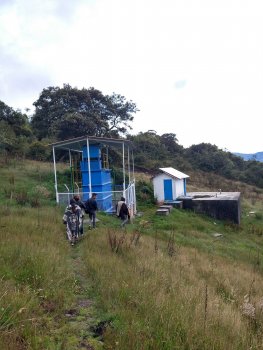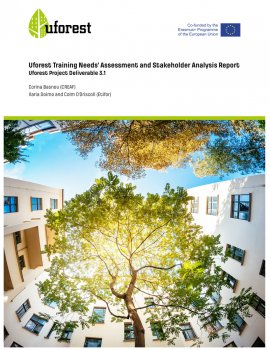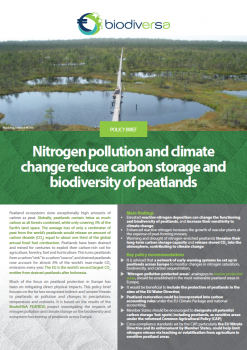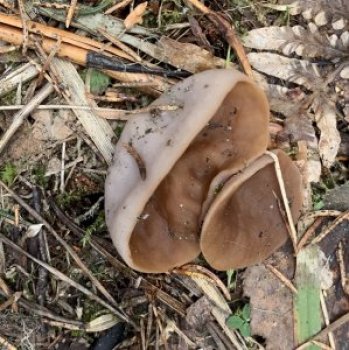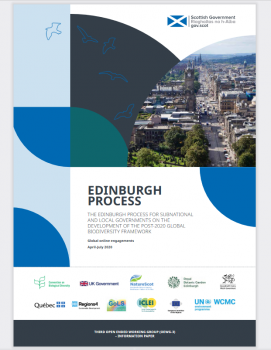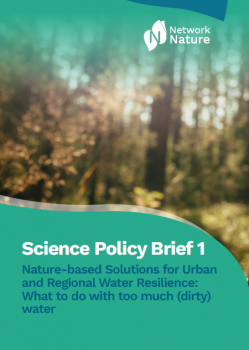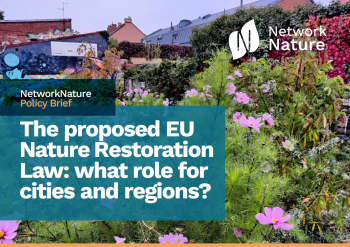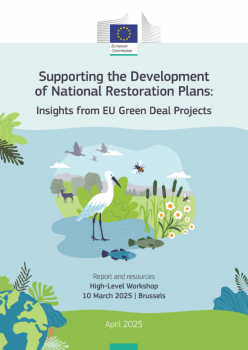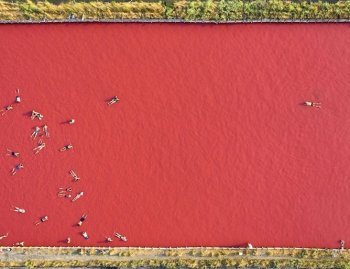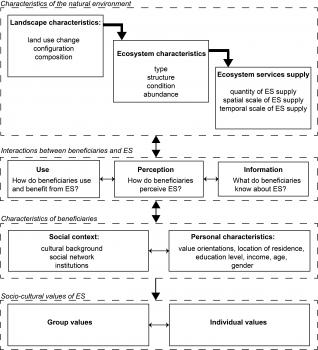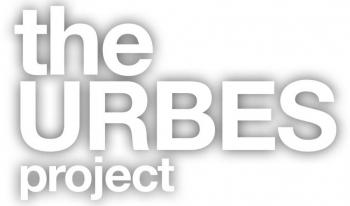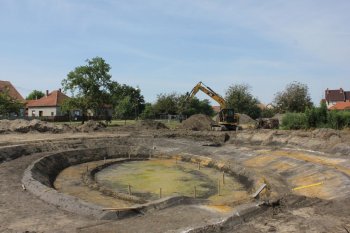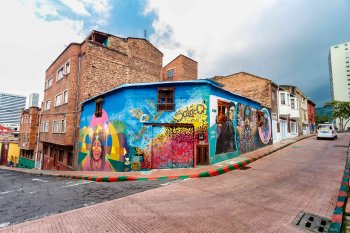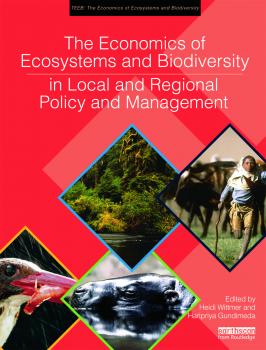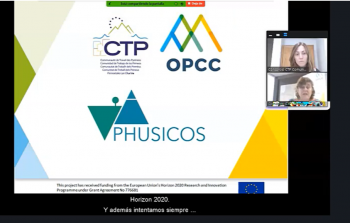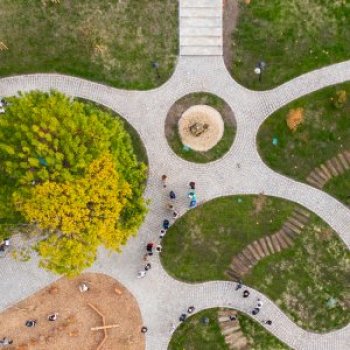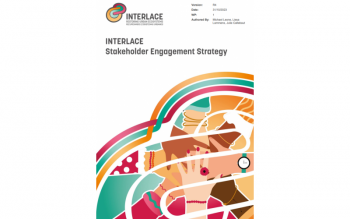Marketplace
Conexus key learning factsheet series - Monitoring NbS together for greater uptake and upscaling
Successful implementation and mainstreaming of Nature-based solutions (NbS) require understanding how their benefits are perceived within society and businesses. To build support and collaboration in evaluating NbS benefits, the CONEXUS project has developed an assessment frame, including a
Uforest Training Needs’ Assessment and Stakeholder Analysis
This report provides an overview of the existing demand on training needs to promote innovation and entrepreneurship in urban forestry and Nature Based Solutions (NbS). The information collected through this study will be the basis for the design of the Uforest learning opportunities. The
ZÖLD-KÉK INFRASTRUKTÚRA: Zöld(-kék) infrastruktúra workshop önkormányzatok részére című esemény előadásai (2023.11.14.)
Magyarország Miniszterelnökségének Közlekedési, Környezeti és Energiahatékonysági Fejlesztési Programok Végrehajtásáért Felelős Helyettes Államtitkársága 2023. november 14-én szakmai szemléletformáló rendezvényt szervezett ”Zöld-(kék) infrastruktúra (ZI) workshop Önkormányzatok részére” címmel.
Nitrogen pollution and climate change reduce carbon storage and biodiversity of peatlands
A “win-win” between biodiversity-conservation and climate-change-combat is illustrated by the "Nitrogen pollution and climate change reduce carbon storage and biodiversity of peatlands" policy brief. It focuses on the farless recognized and 'unseen' threats to peatlands: air
Edinburg Process
Report on the Edinburg Process for Subnational and Local Governments on the Development of the post-2020 Global Biodiversity Framework.
Nature-based Solutions for Urban and Regional Water Resilience: What to do with too much (dirty) water
This policy brief explores the opportunities and challenges in the integration of Nature-based Solutions (NbS) into urban and regional water resilience planning. The brief draws from research, policy, and good practice from the wider NbS community, and presents recommendations to enhance the
International Comparison of Nature-Based Solutions
This report explores the dynamics and politics of urban nature-based solutions innovations by comparing governance arrangements, public participation, financing mechanisms, innovation patterns and social impacts associated with the emergence and deployment of 54 nature-based solutions interventions
The proposed EU Nature Restoration Law: what role for cities and regions?
This policy brief takes a fresh look at the implications of the European Commission’s proposed Nature Restoration Law for cities, regions and local actors. The first of its kind, this paper looks at what the Law holds in store for these governments and authorities – actors on the front lines of the
Supporting the Development of National Restoration Plans
Under the Horizon 2020 Green Deal Call, four major nature restoration projects are being funded – MERLIN, REST-COAST, SUPERB, and WaterLANDS. On 10 March 2025, the four projects held a high-level meeting at the European Commission in Brussels to present and discuss evidence-based recommendations
Innovating with Nature: Factors Influencing the Success of Nature-Based Enterprises
Nature-based enterprises (NBEs) have recently emerged as important actors in the delivery of nature-based solutions (NbS) to societal challenges, but little is known about the context in which they operate and the factors influencing their development. The empirical research undertaken in this
Application of Socio-cultural ES Assessments
Clarifications of the concept of socio-cultural valuation and a structured listing of the available methodologies facilitate a better integration of socio-cultural values in ecosystem service assessments and help researchers and practitioners to choose methods from the available portfolio. We
The URBES Project
The URBES project bridges the knowledge gap on the role of urban biodiversity and ecosystem services for human well-being. It further aims to inform urban management and decision-makers on how to best integrate the natural environment and human needs. The URBES partnership of academic institutions
TELEPÜLÉSI KLÍMAADAPTÁCIÓ: Adaptációs jó gyakorlatok
Az adatbázis célja a hazai önkormányzatok hatékony klímaadaptációjának elősegítése és a klímaváltozással szembeni sérülékenységük csökkentése hazai és nemzetközi jó gyakorlatok bemutatása által. A találatok célirányosan, a projekt, a technológia vagy a település megadásával szűrhetők.
Bridging Worlds Crafting Future-Ready NbS Curricula for Global Sustainability and Justice
This report addresses the current competency and skill gaps among Nature-based Solutions (NbS) professionals, by proposing a set of impactful experiential and inclusive curricula approaches to higher education and professional training providers in Europe and Latin America. It proposes a NbS
The Economics of Ecosystems and Biodiversity in Local and Regional Policy Management
In this volume of the TEEB (The Economics of Ecosystems and Biodiversity) publication series, the key concepts of the project are applied to local and regional policy and public management. The aim is to show that by taking nature's benefits into account, decision makers can promote local
What is PHUSICOS / ¿Qué es PHUSICOS?
Presentation of the PHUSICOS project / Presentación del proyecto PHUSICOS
VÍZGAZDÁLKODÁS: Innovatív vízgazdálkodási megoldások gyűjteménye
Az Innovatív vízgazdálkodási megoldások gyűjteménye olyan fejlesztések, termékek, szolgáltatások adatait gyűjti össze, amelyek ökoszisztéma alapú segítséget nyújthatnak az éghajlatváltozás hatására megjelent térségi és települési vizekhez kapcsolódó problémák kezeléséhez és megoldásához. A
Nature-based Placemaking in High-Density Cities
Ecostack Innovations has just released a new publication with recommendations for Nature-Based Placemaking in High-Density Cities. Through this document, they are sharing some of the learning experiences from the implementation of nature-based placemaking in high-density cities based on our work
INTERLACE Stakeholder Engagement Strategy
Stakeholder engagement is a central element of the INTERLACE project as it aims to co-produce tools, governance instruments and other project deliverables with local stakeholders, as well as facilitate knowledge exchange between local, regional and global stakeholders, to inform and support the
- ‹ previous
- 29 of 55
- next ›

